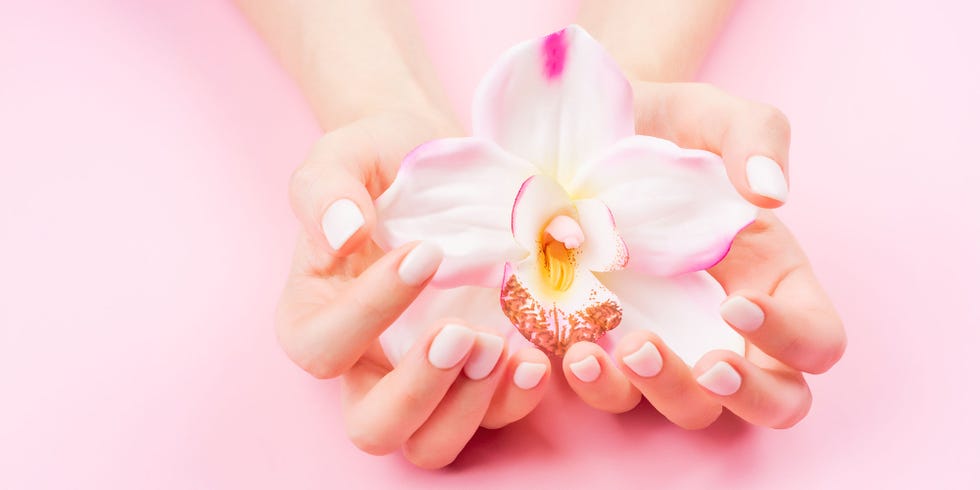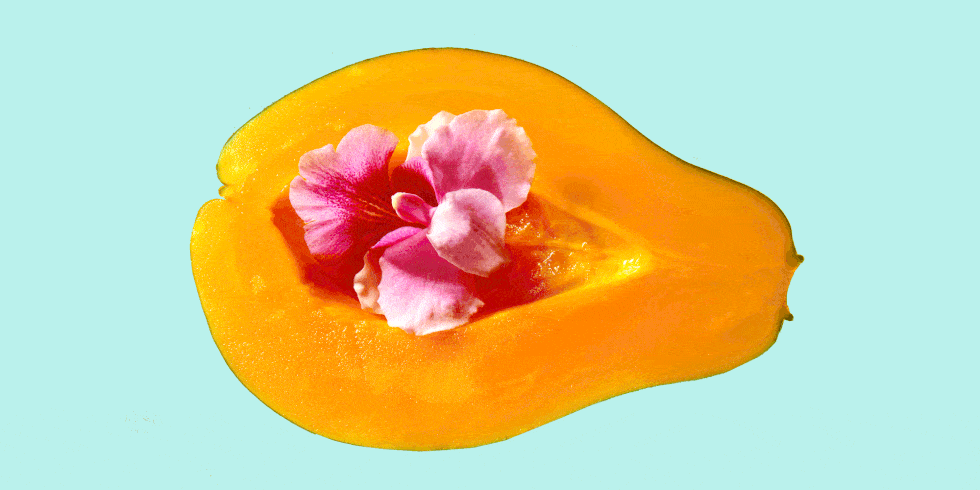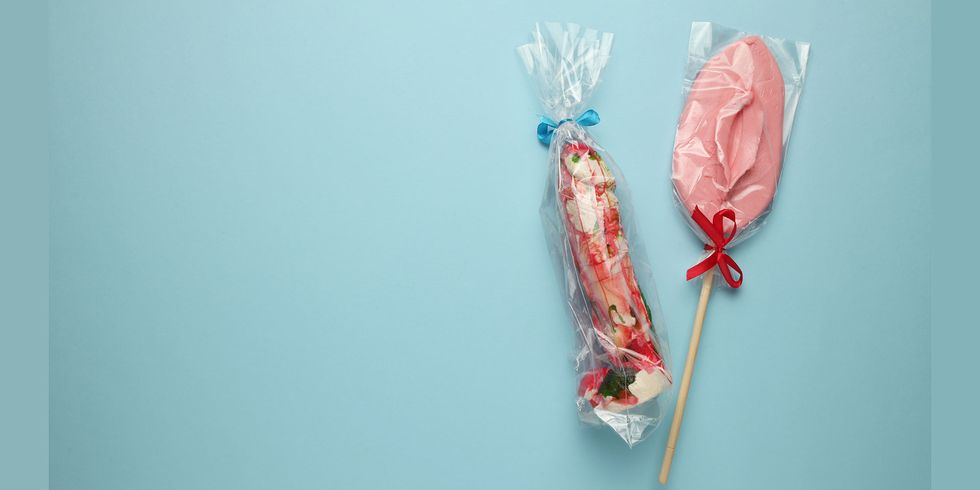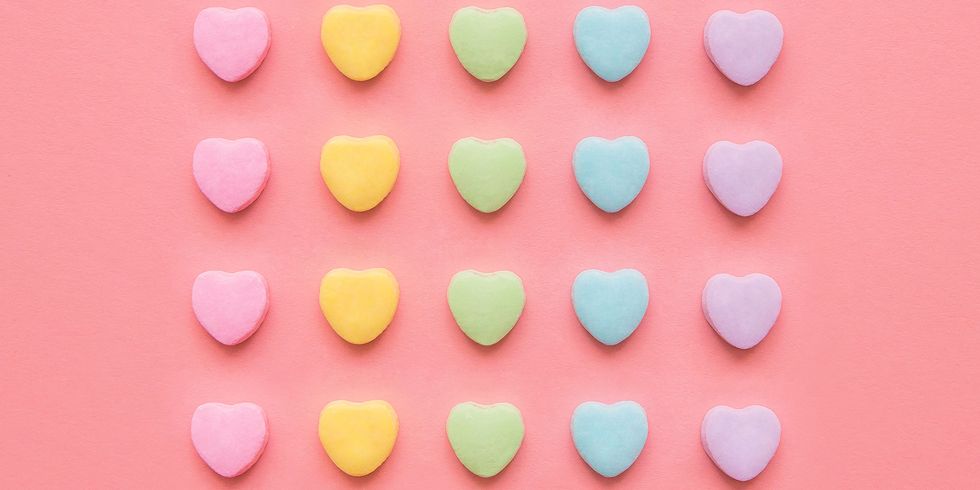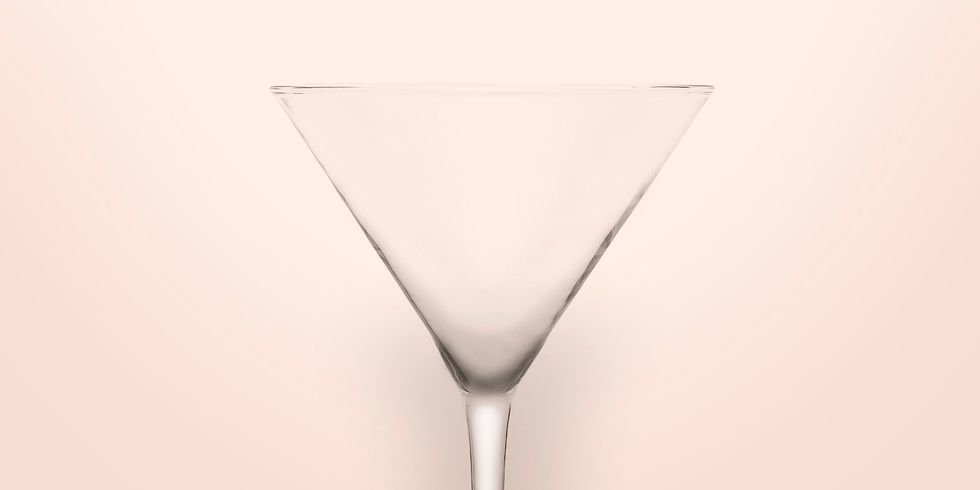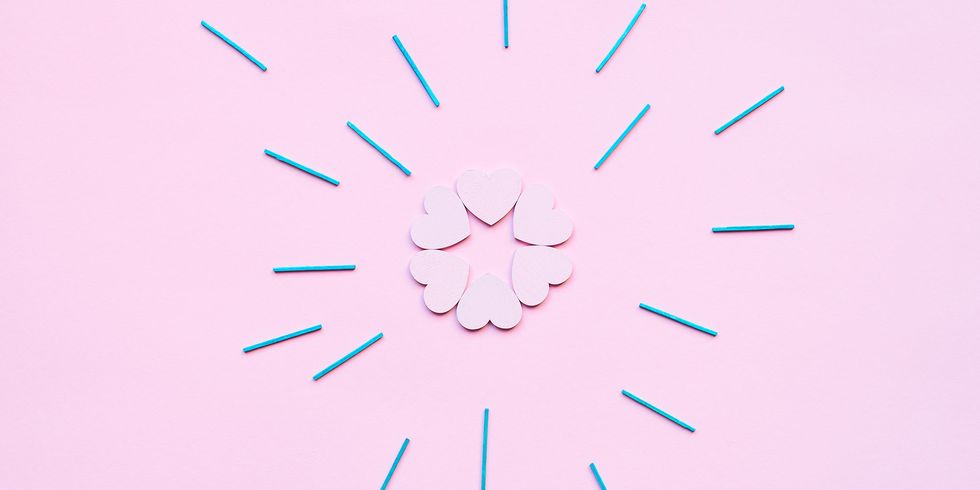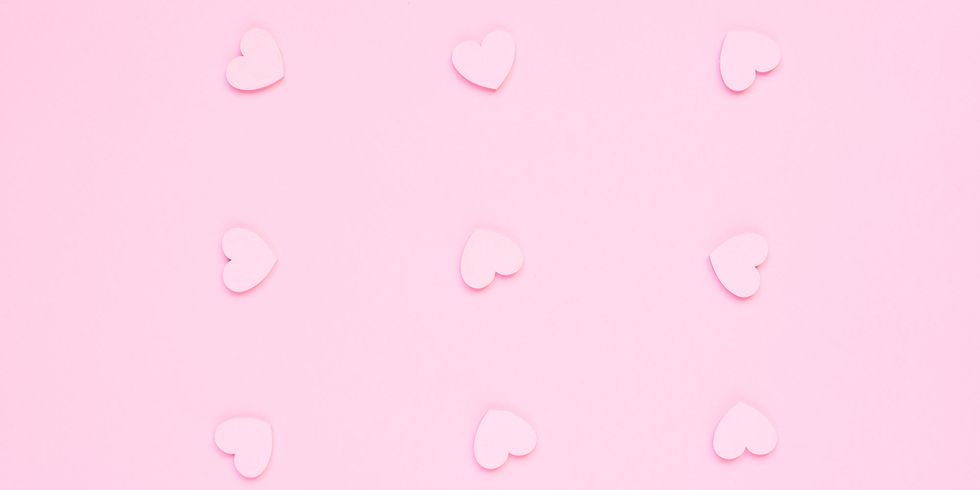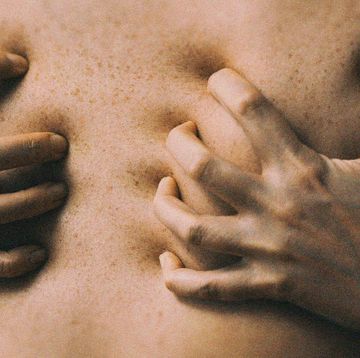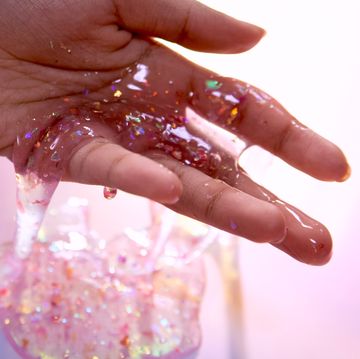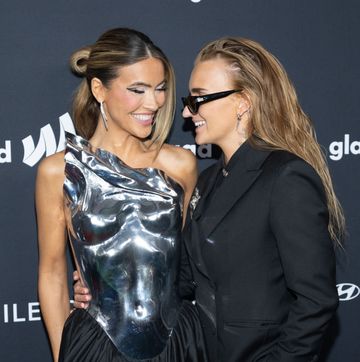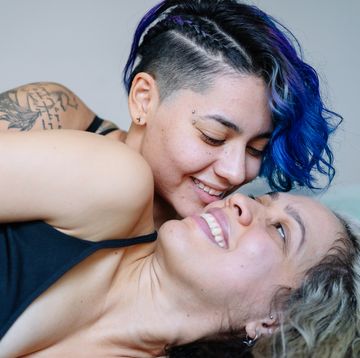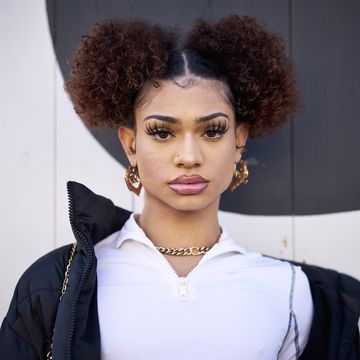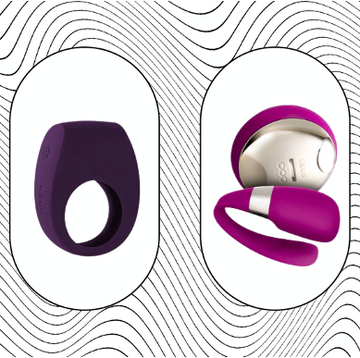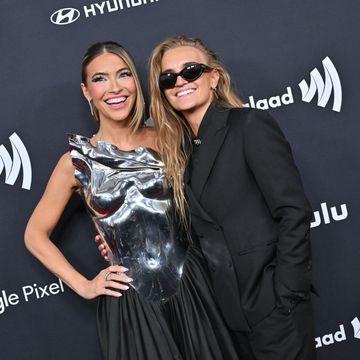They're the too often forgotten "I" at the end of LGBTQI+, but according to the Intersex Society of North America, 1 in every 100 people is born with a body that doesn't fit what we typically think of as "male" or "female." Although some intersex people are identified at birth based on the appearance of their genitalia, others discover their status when puberty hits (or doesn't hit), and others still reach old age without ever learning about their condition.
Here, five intersex people talk about sex, puberty, relationships, and what it's like to grow up with a body that doesn't fit the medical 'norm'.
You identify as intersex. What does that mean?
Woman A, 22: Being intersex means being born with some characteristics that don't neatly fit into the "normal" spectrum of human sexual development (were there such a thing). Myself, I look completely female, but happen to have XY chromosomes. I don't have an official diagnosis, and often with intersex condition, that's the case. The best I could get is gonadal dysgenesis, which is a fancy way of saying that my gonads (would-be ovaries or testes in the womb) never developed into anything. I started with an XY chromosome set, but because those gonads didn't develop and produced no hormones, my body kept the Y chromosome but just didn't develop male parts. So my body stuck along the default path of looking fully female on the outside, but having no functional female reproductive parts on the inside.
Woman B, 25: I have a congenital Disorder/Difference of Sex Development (DSD) called pure gonadal dysgenesis, or Swyer Syndrome. I'm an intersex woman without fully functioning gonads, or sex glands. While most females commonly possess two X chromosomes, my sex chromosomes are XY. Since I don't produce natural oestrogen, I take daily hormones to maintain healthy bones, sexual health, and emotional health.
Woman C, 35: For me, in general, being intersex means being born with primary or secondary sex characteristics that do not fit neatly into society's binary definitions of male or female. You're born with traits and characteristics of both sexes. Somewhere in between. For me specifically, being intersex means that I was born with Swyer Syndrome. That means that I was born externally female, with a uterus and fallopian tubes, but with unformed ovaries. Genetically, however, I have XY (male) chromosomes.
Person A, 25: I don’t identify with the normal boy girl stereotypes because technically I’m something different.
Man A, 49: I have an XXY chromosome set with Partial Androgen Insensitivity Syndrome, so that's two elements of intersex in one body. I have one ovary, a uterus, and a vagina (via vaginaplasty and labiaplasty) behind my scrotum, but I also have a functional penis and one testicle. I have no body hair, female skeleton, and I menstruate. In the old days, they used to call people like me a "true hermaphrodite," but that is not the modern term. So I play the role of male, knowing that I am biologically neither male nor female.
How old were you when you realised you were intersex? How did you find out?
Woman A: I was 15 when I found out. There was no difference in me as a child, no ambiguous genitalia as an immediate alert, so I only found out once I failed to start puberty. My mum started getting concerned that I had no period or breast development, so that was when the first doctor's appointment happened. (Having no ovaries meant no oestrogen or sex hormones to affect anything. Let me tell you — the only thing more awkward than going through puberty is not going through puberty.)
Woman B: I found out two weeks after my 16th birthday. Concerns over an absent period led my parents and I to seek answers at a nearby women's health centre. The results were perplexing. We were told I had typically male chromosomes and no ovaries. Their office didn't have expertise in intersexuality, so we consulted a prominent research endocrinologist about an hour away. After more physical exams and lab work, he charted Swyer Syndrome as the official diagnosis. I didn't know what intersex meant before that day.
Woman C: I was 17 when I found out. I hadn't started my period, and every time I went to the doctor my mum or I asked about it. Because my mum didn't start her period until she was 17, and because I was very active in school sports, they always told us that I was just a late bloomer, and not to worry about it. Toward the end of my first year of high school and into the summer I grew much taller really quickly, and gained a lot of weight. I hadn't changed my eating habits and was still swimming and playing water polo, so we knew something was wrong.
After dozens of blood tests and doctor appointments, I was diagnosed with Complete Androgen Insensitivity Syndrome. It's very similar to Swyer Syndrome, but people with CAIS don't have a uterus. I always wondered why I did, and (thank you Google) discovered Swyer Syndrome around 2008? I then [told my doctors at my next appointment] and let them know. They looked it up and were like, 'Oh yeah, that makes sense.' I don't want to make [my doctors] seem negligent or paint them in a negative light, at all. It's like a one degree difference.
Person A: I was 13 when I was first taken to a doctor to see why I didn’t get my period yet and so they ran a bunch of tests which they then noticed I had XY chromosomes with outwardly feminine characteristics and physique.
Man A: I was 9. I had been raised as male since birth, as I looked like a "normal" male. I'd had vast pains in my stomach area, and after many examinations they realised I had a uterus, one ovary etc. My vagina had fused closed behind my scrotum. If spotted at birth they would have assigned me female. I had to have vaginaplasty to open my vagina and allow menstruation. The medical world advised that the only option was for me to live as female, which I did for seven years. Before the final operation (castration) was due at age 16, I backed out, and was allowed to go back to a male role. I now live as a male, with "female" elements.
How did you feel when you found out?
Woman A: Honestly, I thought it was awesome. I was so happy to be so unique, and I was so happy I'd have some weapon up my sleeve to prove my hated high school biology teacher wrong during her lessons on biological sex. I felt like it was a super power, being female with a Y chromosome. I thought, If I committed a crime, would DNA evidence at the scene lead people looking for a man? Hah! I am blessed in that I received my diagnosis in a liberal household in the 21st century, and both my parents and doctors were so honest and supportive.
Woman B: I felt confused and ashamed of my invisible difference — to an onlooker, I'm definitely a girl, without question. It was my infertility that caused the most distress. I worried that future lovers would reject me because I wasn't all female and couldn't reproduce. I entertained thoughts that nature intended for me to be a boy and I questioned my gender identity.
Woman C: The doctor who told my mum and me the news thought that I already knew of my diagnosis from another doctor I’d seen. So after months of not knowing what was wrong, the doctor walked into the room and said, ‘So tell me what you know about your testicular feminisation….’ (Side note: Testicular Feminisation is an antiquated term that is no longer used) And I had no idea what he was talking about. As a 17 year old girl I definitely didn’t want what was wrong with me to have anything to do with testicles. YIKES. It was a traumatic experience and day, preceded by a lot of other traumatic poking, prodding, and behaviour.
Person A: I was afraid and I feel like that mostly has to do with my initial doctor telling me that there is no one else like me in the world which to a 13 year old is pretty horrible to hear.
Man A: I was relieved that they had found my health problem and that I wasn't critically ill, but I was also confused and scared. I had lived as a male all my life, and I was only 9 years old, but I knew I had to do as my parents and doctors advised, and tried my best to not be a problem for my family. There was so much stigma. I had to get a new ID and go to a new school, and I sensed my parents were upset. I felt I had let them down.
What was it like going through puberty as an intersex person?
Woman A: I was very self-conscious seeing everyone else go through it from ages 9 to 13. I didn't start myself until age 16, so I was the latest bloomer possible. Plus, it was all artificial. The doctor started me on a very small dose of oestrogen patches intended for menopausal women. If you went too fast with introducing oestrogen, you risk lopsided breasts and skewed development. I worked my way up on very small oestrogen doses from the age of 15 to 20, and now I take the same birth control pills any XX woman would take. I think I'm about caught up. I often think about how I went through this process completely artificially. It felt so neat and controlled, versus how I'm told puberty often is. This is the second way in which I found [being intersex] to be a blessing in disguise.
Woman B: Learning I was intersex only added to the discomfort [of middle school]. I witnessed the bodies of my friends and younger siblings begin their transformation to womanhood. I was very self-conscious and aware of my undeveloped breasts, straight torso, and sparse pubic hair. I wore a padded bra whenever I left the house and compulsively dieted so my body's frame would compliment my flat chest. Determined to rid self-consciousness forever, I underwent a breast augmentation at 18.
Woman C: I can tell you what NOT going through puberty was like as an intersex person. It was frustrating to not go through the same things your friends are going through. Starting your period (mine didn’t start until I was 18, when it was induced with hormone replacement therapy), developing breasts, stuff like that. I got breast implants when I was 18 and that made a huge difference in my life then and now! I love having boobs.
Person A: Since I don’t produce any hormones I didn’t get pimples but I also didn’t grow any typical characteristics that come on puberty such as breasts or vaginal hair (or a beard for that matter)
Man A: It was hell. No male puberty happened, as I had opted to live as female from age 9. I went to a female-only school from age 9, had a new identity, lived as girl, and adapted ok. But some "friends" excluded me from groups and so on. I tried to have a boyfriend at age 15, but failed. The main feeling I experienced was shame. I dealt with menstruation, but I never accepted I was going to be a "normal wife and mother." And eventually I realised I was drawn to women, sexually.
How has being intersex affected your sex life?
Woman A: Being intersex determined my sex life at first, but now it is barely a blip. This takes some explaining of my particular situation. After my first surgery to remove my gonads, I later found out (after trying sex) that I had a vagina inside, but a piece of tissue had developed blocking it straight down the middle, like a lane closure. At 17, I was put in the situation of having to ask my parents for another surgery to remove this tissue, thus enabling me to have sex. I never posed the question to them that bluntly, but maybe they knew my real motivation and maybe they didn't. I had the surgery, it was very minor, and that enabled me to have sex like any XX woman would.
The remaining difference is that I don't have ovaries, and I have malformed and nonfunctioning uteri, so I don't have periods and can't get pregnant. Another blessing in disguise! My current boyfriend is also thankful I can't get pregnant, and we've talked about someday adopting, if it ever comes to that point down the line.
Woman B: Although I'm prescribed a daily hormone regime, I have entertained doubts in my body's ability to have vaginal sex. Before my breast augmentation, I avoided intimate scenarios where I had to be topless. Deep-rooted shame and embarrassment weren't quelled by the surgery. I continued to feel less than perfect.
In my early 20s, after continual pain during vaginal sex, a new endocrinologist revealed that I possessed an infantile uterus and — with successful hormone modulation — could carry a pregnancy with a donated egg one day. When my oestrogen and progesterone levels substantially increased, I got my first period shortly following my 22 birthday. Self-lubrication increased and as a result, vaginal sex became more enjoyable. Even though I still have no need for birth control, I'm careful practicing safe sex to prevent STIs.
Woman C: It hasn’t. Externally, I developed typically.
Person A: I couldn’t have sex until about a year ago when I had a surgery that allowed me to have sex. I had that same surgery unsuccessfully for three years in my high school days.
Man A: It has been very hard. I tried to be a straight female as a teen, but it didn't work because I had a penis! Now I live as a heterosexual male, and it has been very hard. I have only ever had three female sexual partners. It was hard to find the courage to tell women who were potential partners, so I was a virgin until I was 21, when an understanding woman eventually got me to confess and explore. I am now with an amazing woman who is bisexual, so it is all great.
Have you told partners and or friends?
Woman C: I’ve never gotten to the point in a romantic relationship where I felt the need or desire to tell someone. I tell friends and have become more and more likely to share as the years have gone on. It’s not something I shout from the rooftops, but it’s also not something I avoid.
Person A: I’ve told more friends than partners. The first partner I told was my current one and their reaction was supportive while also being hurt that I didn’t share it with them sooner. My friends all knew as soon as I could get a grasp on it myself at the age of 20.
Has it affected your fertility?
Woman A: Obviously I have no fertility, since I don't have those parts. But that's something I've never cared about. I'm very lucky though — for many intersex people, infertility is the most devastating part of the diagnosis to come to terms with.
Woman B: Seeing a newborn baby used to be enough to incite pregnancy jealousy, but I've since come to terms with my infertility. There are innumerable options for women and families unable to conceive. Being intersex doesn't mean I won't be a wonderful, nurturing, supportive mother one day.
Woman C: Yes. It is possible for some people with Swyer Syndrome to get pregnant with an egg donor [Editor’s Note: though it’s very rare]. For me personally, I’ve gotten mixed answers from fertility specialists. I had one who said absolutely not, there’s no way you’ll get pregnant, and one who said that he can’t tell until I try an in-vitro hormone cycle. Even before being diagnosed, I loved the idea of fostering to adopt instead of being having a family through a pregnancy, so I am not sure that I’d attempt it. Not having the choice to get pregnant like most people do has been really difficult. Especially when a lot of my friends started having babies. We’ll see!
Person A: Yes, I can’t have children of my own but I do dream of starting a family through adoption.
Man A: No, I have been very lucky to have been fertile as male. That is rare for intersex people. I had been told I would never father children, but life finds a way. I would have faced castration at birth if the doctors had known, and at 16, if they had had their way. I also have one ovary with eggs, but I'm too old to donate, and they could carry genetic issues.
How else does being intersex impact your life now?
Woman A: Being intersex doesn't affect me all that much now that all the work of surgery and puberty is over. I still think it's a cool part of my identity, and I like sharing it with people, but it's just one small part of who I am.
Woman B: I didn't seriously commit to dating until I was 24, largely due to awkwardness and self-consciousness around being intersex. About a month into dating my current partner, I told him I had XY chromosomes. He was naturally curious and incredibly supportive, a reality [that] was very different to the scenario that repetitiously played out in my head. In college, I helped found a youth advocacy program for intersex teens and young adults called Inter/Act, and I've written widely on the topic for school papers, shared my experience publicly in front of a female sexuality class, and recorded a video for the Interface Project.
Woman C: Medically, I take synthetic hormones every day and am at high risk for osteoporosis. I deal with most of the issues menopausal women face. Physically, I am really tall because my body didn’t receive the hormonal signals to stop growing. I also struggle with my weight, which is a combination of my genetic difference, and learning to use food as comfort when I was young. I avoid dating partly because I fear telling a boyfriend about my diagnosis, and also because I feel uncomfortable with my size. I’m working on that, though. YAY THERAPY!
Being intersex doesn’t have a huge impact on my day to day life, but overall it has made me a better, more tolerant person. I am more of an advocate for the LGBT community than I would have been had I not been born this way.
Person A: I now wear it as a badge of honour instead of something that should be hidden. I had just gotten used to being intersex and not a boy or a girl but just an intersex person and I feel like that’s the most difficult part for people to grasp.
Man A: I live a "normal" life, but have to avoid being "outed" as there is still a vast stigma associated with being intersex. I avoid changing rooms, as I look so different. I hide under baggy clothes and never wear shorts. I can't go swimming or use a gym due to changing facilities. My body is too feminine for male change rooms, and I have penis, so it is also inappropriate for female facilities.
What are the biggest misconceptions you've encountered about intersex people?
Woman A: I've been lucky that everyone I've talked to about being intersex has been wholly supportive. (Even in public posts on Facebook, etc.) However, there's still a lot of ignorance out there and I don't think the general public is ready to be so open-minded about the sex spectrum. I worry that people out there will still think, AH! MAN! HERMAPHRODITE! DURR! when learning that someone can have XY chromosomes and still be a woman. Kudos to Katie Baratz, one of the first intersex ambassadors, who actually went on Oprah with her story. I'd watch those clips!
Woman B: Intersex struggles are often misconstrued and conflated with transgender politics. While the two share similarities, they are in fact quite different. People can also use harsh, pejorative language to describe intersex people, such as a hermaphrodite possessing both male and female sex organs. Hermaphrodite was once widely accepted as term to describe a person born intersex in medical nomenclature but has been replaced with Disorder of Sex Development. Intersex, as a diagnosis, covers at least 30 congenital variations of sex anatomy. There isn't one singular intersex person or experience.
Woman C: That it’s something that needs to be ‘fixed’ or that you need to choose between two gender identities.
Person A: I remember reading a comment section on a Buzzfeed video about intersex people and there were a bunch of comments saying that intersex people don’t actually exist. I think that’s the most ridiculous one.
Man A: People assume it is a lifestyle choice — that is they assume we have chosen to "change" gender. Or they assume I can be both, and that it is "cool" to be both.
What, if anything, do you wish had been dealt with differently when you discovered you were intersex?
Woman C: I wish that doctors had been more sensitive. My condition is rare, so I understand medical people being fascinated with it, but there are times when I’ve felt like a sideshow attraction.
Person A: I wish there was more known about being intersex when I was a kid. My doctor wasn’t versed in how common it actually is and made me feel alone and honestly depressed. I began having anxiety attacks because I didn’t want anyone to know. It was just handled very poorly by physicians.
Follow Rachel on Twitter.
This article was originally published in 2014 and has been updated.
Click here for more LGBTQ+ content on our dedicated channel

